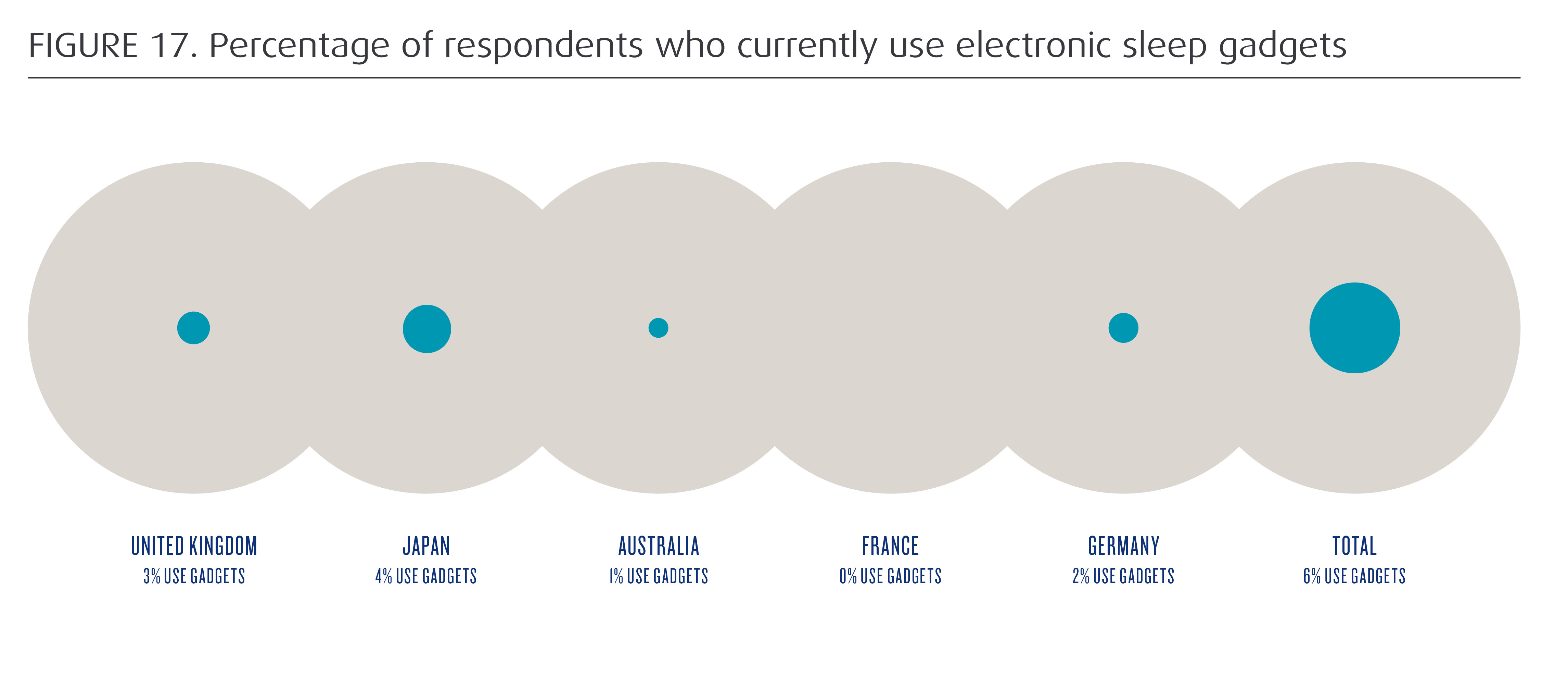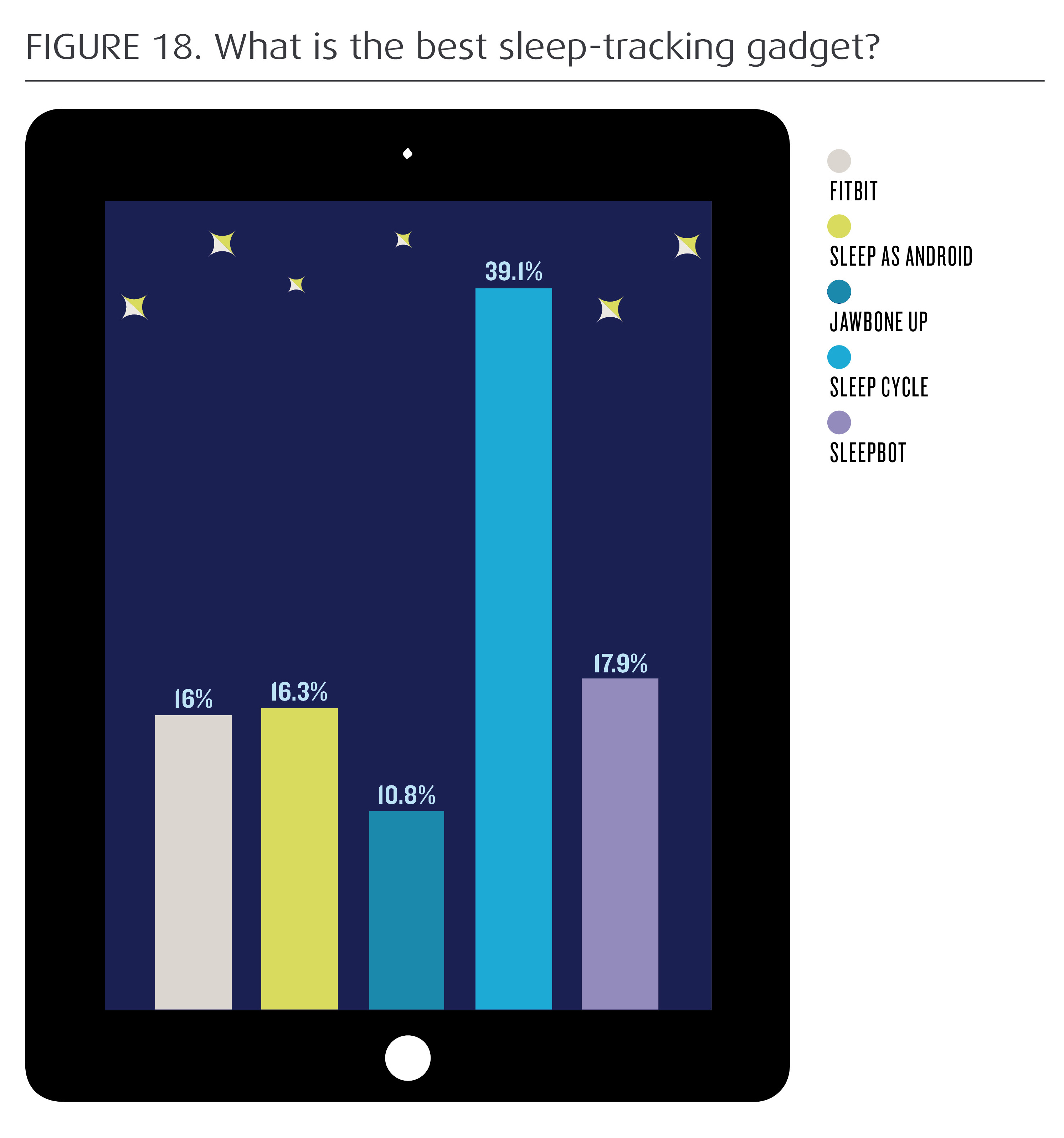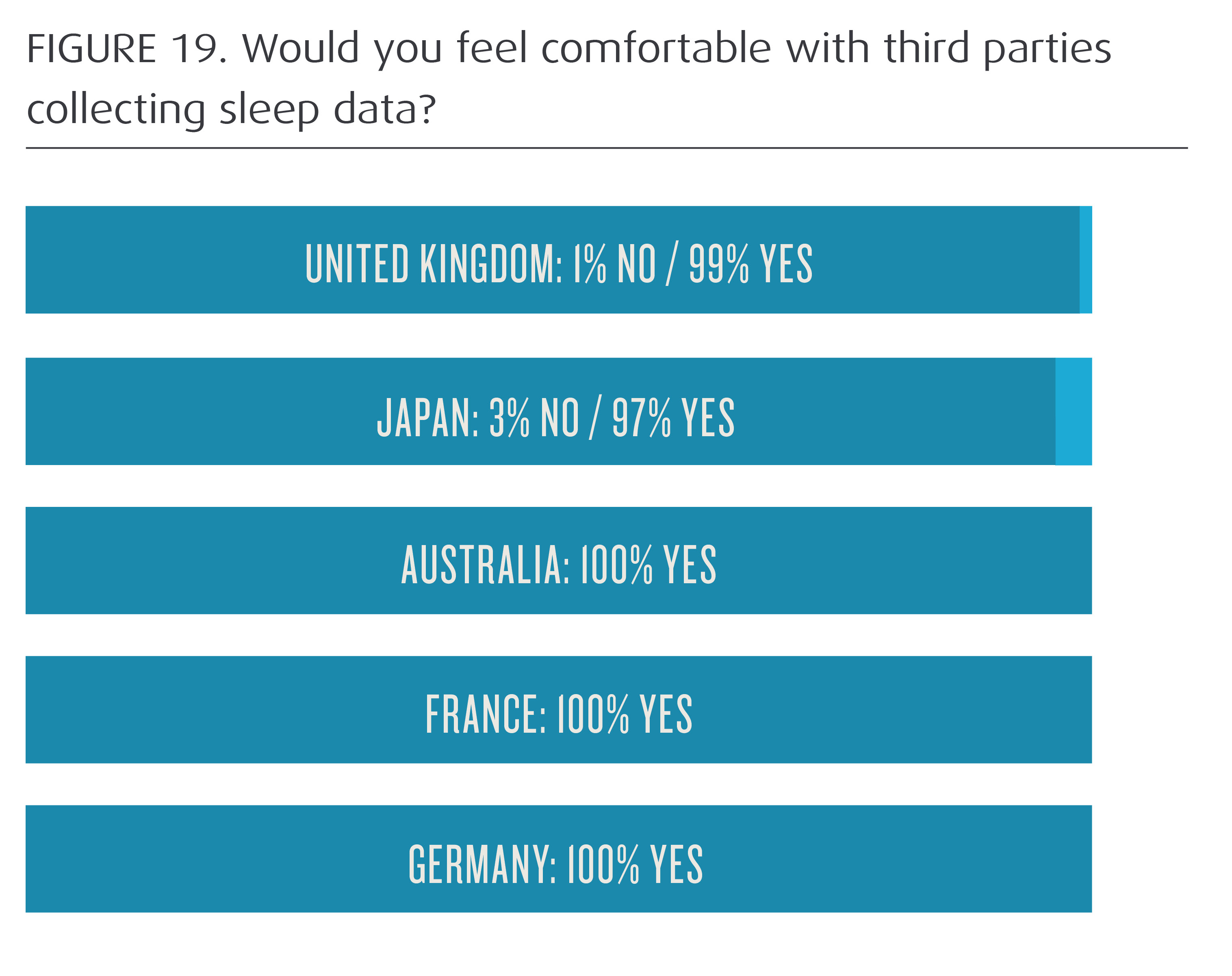It seems only natural that the gadgets we spend all day staring at have a natural place in the bedroom too. The same smartphones that send e-mails and check Facebook throughout the day are often the last thing we look at when we go to bed and the first thing we look at when we wake up, particularly those of us that use them as de facto alarm clocks.
Yet when it comes to gadgets designed specifically for sleep, we appear less enthusiastic. Tempur’s Survey of 500 people found that only 3 per cent of British people use a sleep gadget which is surprisingly low. That was however higher than most comparable countries with only 2 per cent of Germans and 1 per cent of Australians using any forms of sleep gadgets. In Japan, a country renowned for its love of technology, only 4 per cent had yet to adopt a gadget to aid sleep but that could rise quickly in the future.

Is Britain testing the water when it comes to adoption of sleeping gadgets? The popularity of wristband-style wearable technology including the Jawbone Up, the Fitbit, the Microsoft Band and the Apple Watch have been sold partly on the basis that they can collect data on nocturnal patterns. A recent CCS Insight survey found that around 21 per cent of those who currently own a tracker said that monitoring sleep was the primary reason for buying it.
Such gadgets claim to be able to tell the difference between a light and a very deep sleep but the information collected remains fairly basic. Those wearables can monitor heart rate and respiration but have nothing to say on eye movement and brain activity which can provide truly useful information on sleep patterns.
Gadgets are emerging to tackle that problem. The 2016 Consumer Electronics Show (CES) show has already handed an innovation award to a company called AcousticSheep that will show off a product called that is a lightweight headband and wireless earphone combination with sensors that detect and analyse the wearer’s head movement while they sleep. The headphones play music and adjust the volume, sounds and beats based on the level of your sleep indicated by the sensors.

Most people won’t fancy strapping on headbands and chest monitors before going to bed so a new type of device has emerged to gather information on what happens when we shut our eyes. These take their cue from the sort of electronic gadgets parents place next to cots and pads that monitor movement on the mattress.
Samsung is leading the charge on this front with the SleepSense which fits into the South Korean company’s broader home technology suite. The device fits underneath their mattress and collects information on body movement, heart rates and breathing during the night. A smartphone app analyses the data and provides the user with a “sleep score”. It even has a smart alarm that means a user can be woken up during a light sleep which reduces the chances of irritability.

French company Withings has gone a step further with its Aura Total Sleep System that claims to provide optimal lighting during the night and simulate natural lighting conditions for the secretion of melatonin or a more gradual wake-up. The array of gadgets could generate huge amounts of useful data and for all the fierce debate about data privacy, sleep patterns appear to be one area that the public has no qualms about it. The Tempur survey said only 1 per cent of those surveyed in Britain said they would be uncomfortable with a third-party company knowing about their sleep patterns which is remarkably low given the bedroom feels like the most private place in the home and is much more intimate than a Facebook feed.
No matter how you look at it, sleep is getting smarter.



